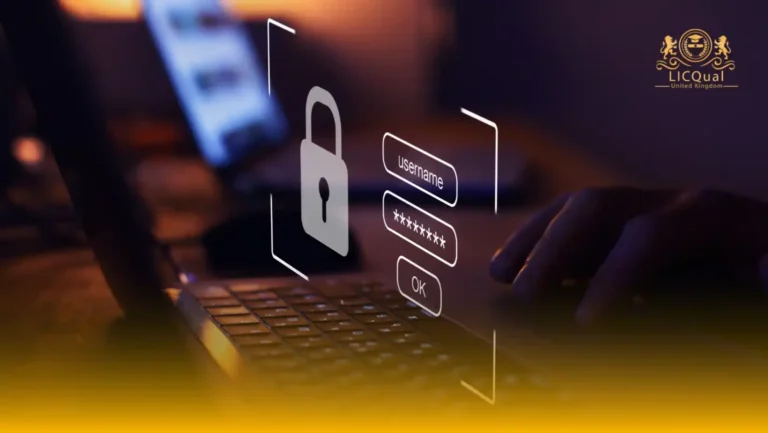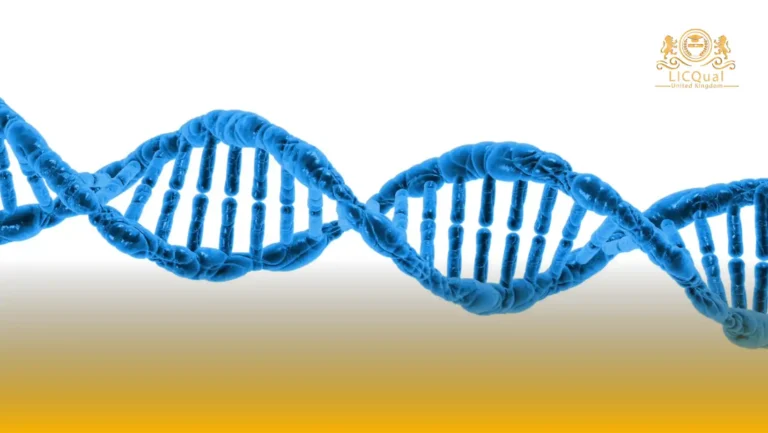The LICQual Level 3 Certificate in Healthcare Informatics and Data Security is a specialized qualification designed to equip healthcare professionals with the advanced knowledge and practical skills required to manage, analyze, and safeguard sensitive healthcare data. In today’s digital healthcare environment, where the secure handling of patient records and the effective use of informatics play a critical role in improving outcomes, this qualification provides learners with the tools to meet these evolving demands.
This programme is not intended for fresh candidates. It is specifically tailored for experienced professionals who wish to expand their knowledge, enhance their career prospects, and strengthen their Continuing Professional Development (CPD). Learners will explore key areas such as healthcare data management, information governance, ethical frameworks, digital health systems, and the latest strategies in cybersecurity, ensuring they are fully prepared to address real-world challenges in healthcare data security and informatics.
Centers delivering this qualification must ensure they have competent and qualified staff with relevant expertise, along with the necessary learning materials, digital tools, and resources to support high-quality teaching and learner success. A strong emphasis is placed on providing a professional learning environment where learners can engage in practical applications, case studies, and strategic approaches to data protection in healthcare.
By completing this qualification, learners will be well-prepared to take on greater responsibility within healthcare organizations, contribute to digital transformation projects, and uphold the highest standards of data security and ethical practice. This makes the LICQual Level 3 Certificate in Healthcare Informatics and Data Security an essential step for professionals committed to excellence in healthcare management.
Course Overview
Qualification Title
LICQual Level 3 Certificate in Healthcare Informatics and Data Security
Total Units
6
Total Credits
24
GLH
120
Qualification #
LICQ2200727
Qualification Specification
To enroll in the LICQual Level 3 Certificate in Healthcare Informatics and Data Security, applicants must meet the following criteria:
|
Qualification# |
Unit Title |
Credits |
GLH |
|---|---|---|---|
|
LICQ2200727-1 |
Foundations of Healthcare Informatics |
4 |
20 |
|
LICQ2200727-2 |
Healthcare Data Management and Governance |
4 |
20 |
|
LICQ2200727-3 |
Information Security and Risk Management in Healthcare |
4 |
20 |
|
LICQ2200727-4 |
Legal, Ethical, and Regulatory Aspects of Healthcare Data |
4 |
20 |
|
LICQ2200727-5 |
Digital Health Technologies and Emerging Trends |
4 |
20 |
|
LICQ2200727-6 |
Applied Healthcare Informatics and Data Security Practices |
4 |
20 |
Unit 1: Foundations of Healthcare Informatics
By the end of this unit, learners will be able to:
- Explain the key concepts of healthcare informatics and its role in patient care.
- Analyse how digital transformation impacts healthcare delivery and decision-making.
- Evaluate the relationship between data, information, and knowledge in healthcare contexts.
- Apply international standards of healthcare informatics to practical scenarios.
Unit 2: Healthcare Data Management and Governance
By the end of this unit, learners will be able to:
- Demonstrate understanding of healthcare data collection, storage, and retrieval processes.
- Assess the principles of data governance and accountability in healthcare organisations.
- Ensure data accuracy, integrity, and accessibility through best practices.
- Manage the full lifecycle of healthcare data securely and effectively.
Unit 3: Information Security and Risk Management in Healthcare
By the end of this unit, learners will be able to:
- Explain the importance of information security within healthcare systems.
- Identify potential risks and vulnerabilities in healthcare data management.
- Apply cybersecurity protocols, encryption, and access controls in real-world contexts.
- Evaluate risk management strategies to enhance healthcare information security.
Unit 4: Legal, Ethical, and Regulatory Aspects of Healthcare Data
By the end of this unit, learners will be able to:
- Interpret national and international regulations governing healthcare data.
- Analyse ethical dilemmas related to patient data management.
- Apply data protection and privacy laws (such as GDPR principles) to healthcare practices.
- Balance patient rights with organisational responsibilities in data handling.
Unit 5: Digital Health Technologies and Emerging Trends
By the end of this unit, learners will be able to:
- Assess the role of electronic health records (EHR) and digital health systems.
- Evaluate the impact of AI, big data, and cloud computing on healthcare delivery.
- Explain the use of telehealth and mobile health technologies in patient care.
- Analyse future trends and innovations in healthcare informatics and predictive analytics.
Unit 6: Applied Healthcare Informatics and Data Security Practices
By the end of this unit, learners will be able to:
- Evaluate real-world case studies of healthcare data breaches and their consequences.
- Implement best practices for developing and enforcing data security policies.
- Apply informatics solutions to improve healthcare organisational efficiency.
- Develop strategies to ensure healthcare data systems remain secure and future-ready.
The LICQual Level 3 Certificate in Healthcare Informatics and Data Security is perfect for healthcare professionals, IT specialists, administrators, and anyone seeking to develop expertise in managing and protecting sensitive health information. This course is designed for individuals who want to enhance their knowledge of healthcare informatics, safeguard patient data, and implement secure digital health systems.
1. Healthcare Professionals Seeking Informatics Skills
- Gain practical knowledge in managing electronic health records
- Learn to analyze and utilize healthcare data effectively
- Understand clinical workflows and data-driven decision-making
- Improve patient care using healthcare informatics tools
- Apply data protection principles in everyday healthcare settings
- Enhance career opportunities in hospitals and clinics
2. IT Specialists Entering Healthcare Sector
- Learn healthcare-specific IT systems and security protocols
- Develop skills in healthcare data management and cybersecurity
- Understand regulatory compliance for health information systems
- Implement secure electronic health record systems
- Gain expertise in protecting sensitive patient data
- Prepare for IT roles in hospitals, clinics, or health organizations
3. Healthcare Administrators and Managers
- Improve operational efficiency through healthcare informatics
- Develop policies for secure management of patient information
- Monitor data compliance and regulatory standards
- Implement strategies to safeguard digital health systems
- Learn to manage cross-department data workflows
- Enhance leadership and decision-making skills
4. Students and Graduates Exploring Healthcare IT Careers
- Acquire practical skills in healthcare data management
- Build a recognized Level 3 certification for your CV
- Learn how to protect patient data in clinical environments
- Gain knowledge in digital health systems and informatics tools
- Prepare for careers in healthcare IT, management, or informatics
- Stand out in competitive healthcare technology programs
5. Compliance and Risk Professionals in Healthcare
- Understand healthcare data security regulations
- Learn risk assessment and mitigation for patient information
- Apply compliance strategies in hospitals and clinics
- Develop skills in auditing health information systems
- Protect organizations from cyber threats and breaches
- Improve organizational data governance practices
6. Policy Makers and Healthcare Planners
- Gain insights into secure healthcare system management
- Learn to develop data protection policies for health services
- Implement effective data security strategies
- Understand healthcare informatics for population health planning
- Ensure compliance with national and international regulations
- Support organizational decision-making with data-driven insights
7. Volunteers and Community Health Workers
- Learn safe handling of patient and community health data
- Understand ethical considerations in data security
- Apply healthcare informatics skills in community programs
- Protect sensitive information while supporting healthcare initiatives
- Gain practical knowledge for safe and responsible healthcare service
- Improve effectiveness and impact in volunteer or support roles
To deliver the LICQual Level 3 Certificate in Healthcare Informatics and Data Security, approved centres must maintain the highest standards of training delivery and learner support. Centres are required to meet the following essential requirements to ensure quality education, learner success, and compliance with international standards:
- Qualified and Competent Staff – Trainers, assessors, and internal quality assurers must hold relevant qualifications, professional expertise, and experience in healthcare informatics, data security, and healthcare management.
- Access to Learning Resources – Centres must provide learners with updated study materials, digital learning resources, case studies, and access to healthcare IT systems where applicable.
- Appropriate Infrastructure – Centres must have well-equipped training facilities, including classrooms with multimedia support, secure IT systems, and access to online platforms for blended learning.
- Assessment and Quality Assurance Systems – Robust systems must be in place to conduct fair assessments, internal verification, and ongoing monitoring to maintain training quality.
- Learner Support Services – Centres should provide academic guidance, technical support, and career development resources to help learners succeed in their studies and professional growth.
- Commitment to Data Security Standards – Centres must follow best practices in cybersecurity, data protection, and compliance with healthcare information governance when managing learner information and course-related data.
- CPD-Oriented Environment – Centres should foster a professional learning culture that encourages learners to pursue continuous improvement and career advancement.
By fulfilling these centre requirements, institutions ensure the delivery of high-quality training programmes that empower learners with the knowledge and practical skills to excel in healthcare informatics and data security.
Assessment and Verification
All units within this qualification are subject to internal assessment by the approved centre and external verification by LICQual. The qualification follows a criterion-referenced assessment approach, ensuring that learners meet all specified learning outcomes.
To achieve a ‘Pass’ in any unit, learners must provide valid, sufficient, and authentic evidence demonstrating their attainment of all learning outcomes and compliance with the prescribed assessment criteria. The Assessor is responsible for evaluating the evidence and determining whether the learner has successfully met the required standards.
Assessors must maintain a clear and comprehensive audit trail, documenting the basis for their assessment decisions to ensure transparency, consistency, and compliance with quality assurance requirements.







